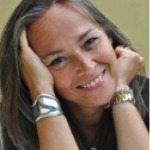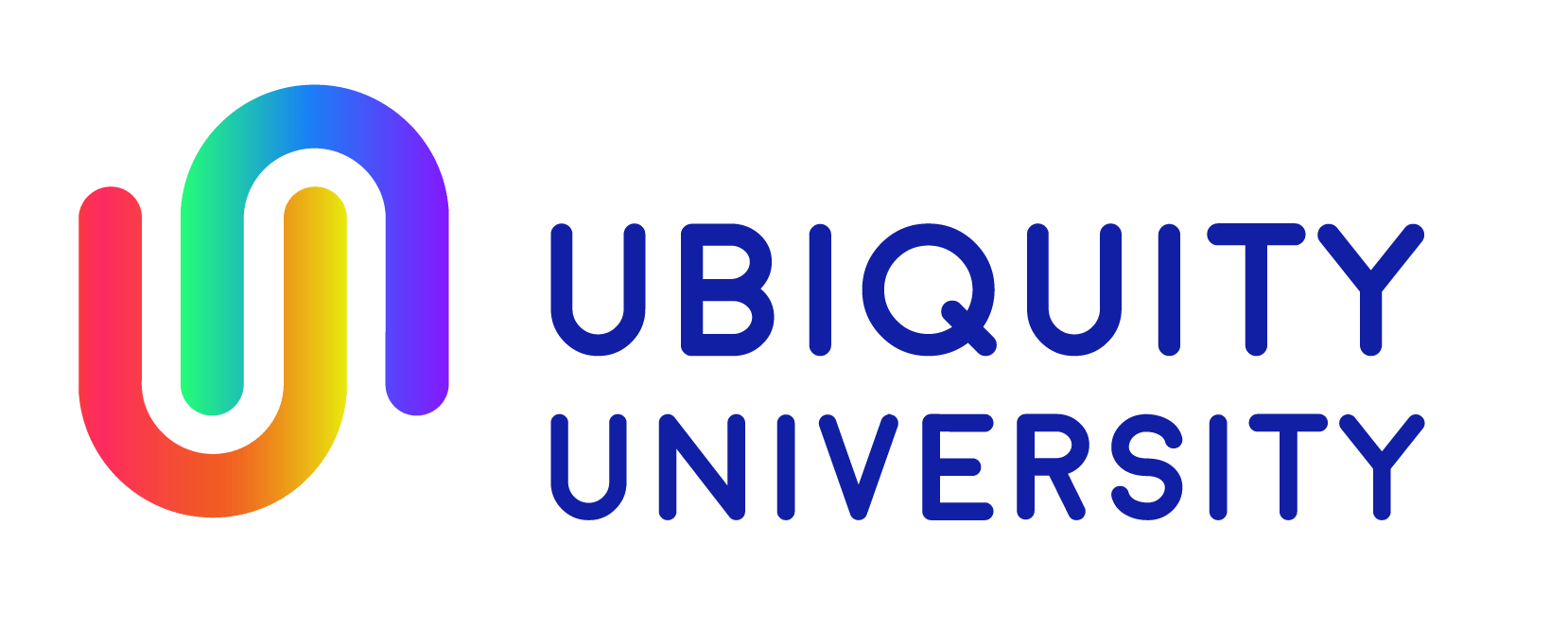The Wisdom School at Ubiquity University recognizes that students need support when tackling their master’s thesis or doctoral proposals and dissertations. To address these needs, every 6 – 12 months we offer the Creative Journey to Dissertation course that introduces students to tactics for planning, writing, and revising their research to produce polished, clear and highly efficient academic writing. Spending time together in this focused way provides you with the opportunity for in-depth discussion with both the faculty and your peers, and a chance to receive valuable ideas and feedback from the group. Students frequently report back to us that this is one of the most energizing and inspiring courses they have taken. NOTE: This course is open to Masters thesis students who will benefit from this essential course in order to write an outstanding dissertation.
Note: Registration is capped at 15 students.
Zoom Information: Once you have registered for this program, you will receive an email with the Zoom link around 7 days before the program.
Faculty: Gyorgyi Szabo, PhD, Melissa Pritchard, MFA, Jim Garrison PhD,
Academic Credit: Masters – 4 credits; Doctoral – 4 credits
Limited Enrollment: This course is available to enrolled MA and PhD students only. Registration is capped at 15.
Email our Registrar Veronica Saldias for more information
Upcoming Dates:
Location: On Zoom – 09:00 AM Pacific for 3 hours. These sessions will NOT be recorded.
Register here
Dec 8-12, 2025
Location: On Zoom – 09:00 AM Pacific for 3 hours. These sessions will NOT be recorded.
Register here
Location: On Zoom – 09:00 AM Pacific for 3 hours. These sessions will NOT be recorded.
Register here
Register here
Register here
April 13-17, 2026
Register here

Dissertation Writing and Research Methods
During this virtual intensive, students will familiarize themselves with the writing and research methods specific to the Wisdom School, where the focus is not only on the rational understanding of material but also on the students’ interior journey. Such methods combine objective and subjective elements, joining rigorous analysis with personal introspection, encouraging both intellectual understanding of the material at hand and self-awareness about the proclivities and perspectives that one brings to it.
By exploring both sides of this objective/subjective dynamic, the course aims to help students determine dissertation topics that are suited to their personal journeys, as well as develop strategies that will enrich and advance their projects. They will engage in exercises intended to help them tap their interior wisdom as they hone a topic and give shape to a proposal. In an ambience of mutual support, students will share their dissertation ideas, plans and concerns with student peers and faculty. They will review dissertation requirements, discuss different research methods, and become familiar with helpful resources for the American Psychological Association style of writing, which is required for all dissertations at the University. After once taking the course for credit, matriculated students are welcome to repeat it as auditors for a small administrative fee, should they feel it helpful in the ongoing preparation of their dissertations.
Transformational Art
“Tell me, what is it you plan to do
With your one wild and precious life?”
—from Mary Oliver’s The Summer Day
Our teacher this session will be journalist and author Melissa Pritchard. To write powerfully, from a place of inner pilgrimage, laboring for core truths, requires passion, courage and self-discipline. Using exercises drawn from a variety of artistic mediums and spiritual processes, including visual art, theater, writing, music and meditation, we will stimulate intuitive and sensory intelligence, awaken powers of observation and imagination, expand memory, learn to deflect self-sabotage and find the strength to take joyful risks. By forging crucial connections between the wisdom of the senses, the intellect and the spirit, we will align deeper self-awareness with a creative, meaningful shaping of dissertation subjects.

Course Learning Objectives
- Build a supportive community of fellow pilgrims on the dissertation journey.
- Tap one’s own inner wisdom to help shape and refine a dissertation topic.
- Hone one’s dissertation ideas within a creative crucible of shared inquiry.
- Identify the ontological and epistemological perspectives of various research methodologies.
- Develop strategies to promote the process of writing and completing the dissertation.
Course Modules & Topics
- Sacred Practice
- Seminar:
- Elaboration of dissertation writing challenges and experiences
- Ways of knowing
- Academic writing and research methods
- Handling writer’s block
- Transformational Art
- Sacred Practice
- Seminar:
- Review of the Dissertation Writing Manual
- APA guidelines and footnotes
- Conceptual framework
- The role of Major Advisors and External Examiners
- The differences between dissertation writing and other types of writing such as books, etc.
- Transformational Art
- Sacred Practice
- Seminar:
- Student presentations, discussion of projects
- Transformational Art
- Sacred Practice
- Seminar:
- Student presentations, discussion of projects, continued
- Transformational Art
- Sacred Practice
- Seminar:
- Student presentations, discussion of projects, continued
- Closing circle
Faculty
 Gyorgyi Szabo, PhD serves as Ubiquity University’s Dean of Graduate Studies and Director of Research. She was a Co-Founder and Academic Dean of the Ervin László Center for Advanced Study (ELCAS). She served as Director of Research and Development of the Center’s Exploratoria Program. She was co-creator of the WorldShift International Foundation, and the WorldShift 2012 organizations, and currently serves as Member of the Advisory Board of the Memnosyne Foundation. In 2012, she founded and now serves as a President of UniverSoul, a Hub for Conscious Evolution in Paris, in association with Barbara Marx Hubbard. Gyorgyi lectures worldwide and has published papers in The Scientific and Medical Network’s Review, The Shift Network, and World Futures: The Journal of New Paradigm Research. She translated from Italian to English The Basic Code of the Universe: The Science of the Invisible of Physics, Medicine and Spirituality by Dr Massimo Citro.
Gyorgyi Szabo, PhD serves as Ubiquity University’s Dean of Graduate Studies and Director of Research. She was a Co-Founder and Academic Dean of the Ervin László Center for Advanced Study (ELCAS). She served as Director of Research and Development of the Center’s Exploratoria Program. She was co-creator of the WorldShift International Foundation, and the WorldShift 2012 organizations, and currently serves as Member of the Advisory Board of the Memnosyne Foundation. In 2012, she founded and now serves as a President of UniverSoul, a Hub for Conscious Evolution in Paris, in association with Barbara Marx Hubbard. Gyorgyi lectures worldwide and has published papers in The Scientific and Medical Network’s Review, The Shift Network, and World Futures: The Journal of New Paradigm Research. She translated from Italian to English The Basic Code of the Universe: The Science of the Invisible of Physics, Medicine and Spirituality by Dr Massimo Citro.
 Melissa Pritchard, MFA
Melissa Pritchard, MFA
Past finalist for the PEN Nelson Algren Fiction Award, Melissa Pritchard’s fiction and non-fiction have appeared in The Paris Review, A Public Space, Ploughshares, Ecotone, Conjunctions, LitMag, The Chicago Quarterly Review, The Georgia Review and numerous other magazines, anthologies and journals. She has received an NEA, three Pushcart Prizes, two O. Henry Prizes the Flannery O’Connor Award, the Carl Sandburg Literary Award, the Janet Heidinger Kafka Prize and a Marguerite and Lamar Smith Fellowship from the Carson McCullers Center. Two of her books have been named New York Times Editors Choice, another received a Barnes and Noble Discover Great Writers Award. Others have been named “Best Books of the Year” by the San Francisco Chronicle and the Chicago Times. One of her story collections was an NPR ‘s “Summer Reading” selection. Professor Emeritus at Arizona State University and current fiction editor for IMAGE Magazine, Melissa has published four novels, four story collections, a volume of essays and a biography. Her fifth novel, WILD SWAN, a biographical fiction of Florence Nightingale, will be published by Bellevue Literary Press, NYC, in March 2024.
Required Reading
- Wisdom School Doctoral Dissertation Manual
- American Psychological Association (2009). Publication manual of the American Psychological Association (Sixth ed.). Washington, D.C.: American Psychological Association.
Recommended Reading
- Booth, W., Colomb, G. & Williams, J. (2008). The craft of research (3rd ed.). Chicago, Il: University Of Chicago Press. ISBN-10: 0226065669. ISBN-13: 978-0226065663.
- Roberts, C. M. (2010). The dissertation journey: A practical guide to planning, writing, and defending your dissertation (2nd ed.). Thousand Oaks, CA: Corwin. ISBN-10: 1412977983. ISBN-13: 978-1412977982.
Useful Books on Research Methodologies
- Anderson, R., & Braud, W. (2011). Transforming self and others through research: Transpersonal research methods and skills for the human sciences and humanities. Albany, NY: State University of New York Press. ISBN-10: 1438436726. ISBN-13: 978-1438436722.
- Barone, T. E., & Eisner, E. W. (2011). Arts-based Research. Los Angeles, CA: Sage. ISBN-10: 1412982472. ISBN-13: 978-1412982474.
Creswell, J. W. (2012). Qualitative Inquiry and Research Design: Choosing Among Five Approaches (3rd ed.). Los Angeles, CA: Sage. ISBN-10: 1412995302. ISBN-13: 978-1412995306. - Curry, D., & Wells, S. J. (2006). An Organic Inquiry Primer for the Novice Researcher: A Sacred Approach to Disciplined Knowing. West Conshohocken, PA: Infinity Publishing. ISBN-10: 0741430789. ISBN-13: 978-0741430786.
- Kovach, M. E. (2010). Indigenous Methodologies: Characteristics, Conversations, and Contexts (Reprint ed.). Toronto, Canada: University of Toronto Press.
- Leavy, P. (2008). Method Meets Art: Arts-Based Research Practice. New York, NT: The Guilford Press. ISBN-10: 1593852592. ISBN-13: 978-1593852597.
- Wilson, S. (2009). Research as Ceremony: Indigenous Research Methods. Black Point, Novia Scotia, Nova Scotia: Fernwood Publishing Co. ISBN-10: 1552662810. ISBN-13: 978-1552662816.
Assessment and Grading
There is no pre or post paper assignment for this course. Students come to discuss and develop their masters or doctoral dissertations and their grade will be based on the quality of their participation at the mandatory zoom sessions held during the week.
The rules guiding our assignment collection and grading process can be found here: Ubiquity University Grading Policy
Information about how we process refund or cancellation requests can be found here: Refund and Cancellation Policy





